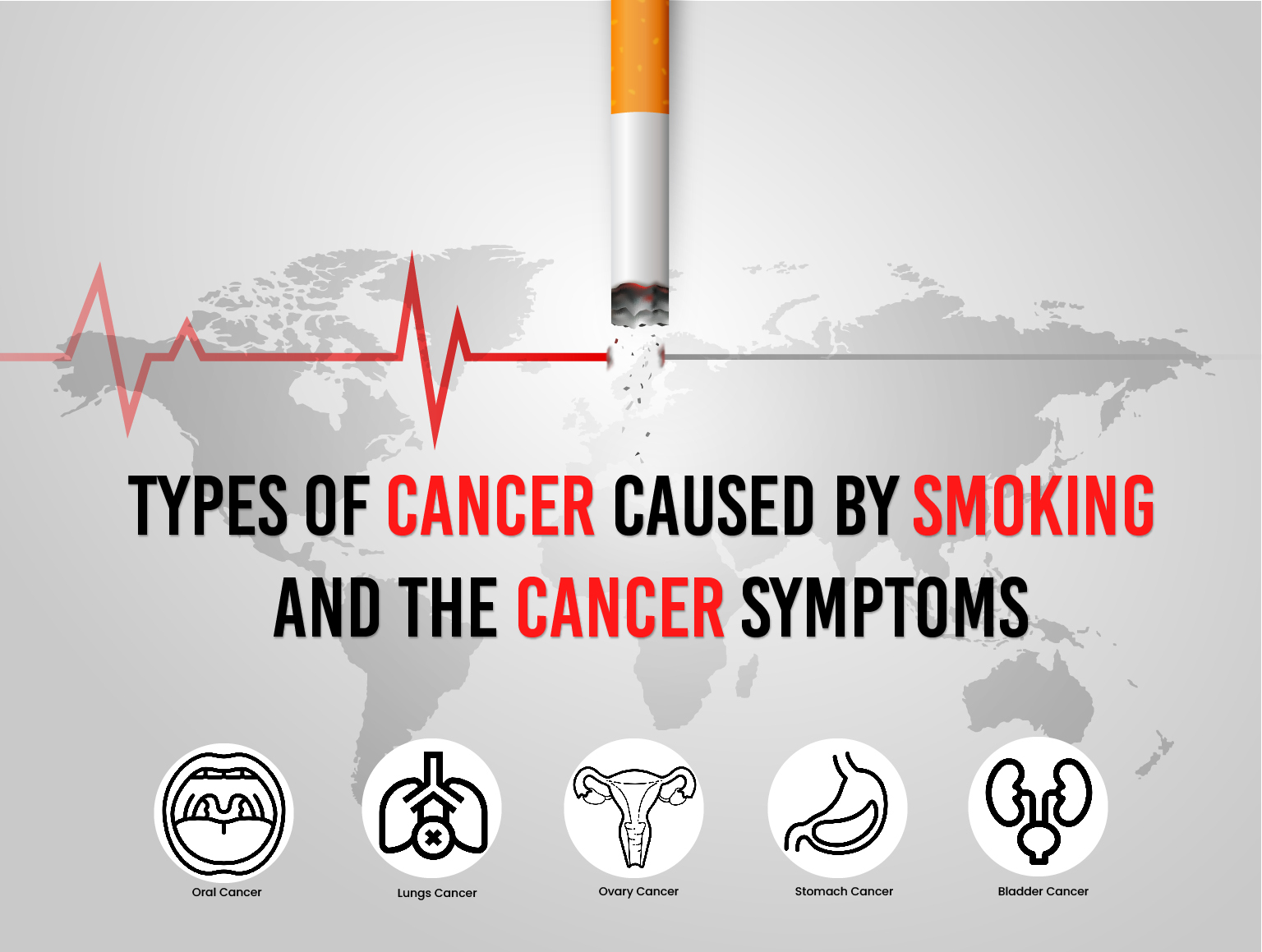Association Between Smoking and Cancer
Smoking kills, and smoking causes cancer. But do you know what types of cancer are caused by smoking and what are the smoking cancer symptoms? A sizable portion of the general public prefers to ignore this message. Ironically, smoking is well-recognized, and many malignant conditions can be accessed.
Most people equate Smoking with lung cancer, but did you know that Smoking can also cause 16 other types of cancer? 7000 chemicals, including 69 recognized carcinogens, enter the lungs with every puff of a cigarette and spread to other parts of the body. Passive smoking by people accompanying smokers has proven to be equally dangerous.
Effects of Smoking on the Lungs
Smoking causes lung cancer and is to blame for 85% of all cancer diagnoses. Smoking is harmful to health. It causes cancer. But how does Smoking affect your body, and why does Smoking cause cancer?
Around 500 million microscopic air sacs known as alveoli are found in your lungs. Smoking kills the cells lining these air sacs, causing them to burst. Tobacco’s carcinogenic compounds are inhaled through the mouth, nose, and windpipe, causing harm to lung tissue and cells.
Smoking can harm the cilia, which are tiny hairs that remove mucus and small dirt particles from the lungs to keep them clear. Therefore, cigarette causes cancer by damaging the lungs.
Chronic smoking can lead to heart and lung diseases, stroke, infertility, and all types of cancers ranging from head and neck cancer, lung cancer, breast, cervix, and prostate cancer to bladder cancer. One puff after another is a slow killer taking to their own grave.
Smoking Cancer Symptoms
Here are some of the most common smoking cancer symptoms:
- Cough
- Blood in the phlegm
- Chest pain
- Shortness of breath while performing normal tasks or climbing stairs, frequent pneumonia episodes
- Voice hoarseness
- Weight loss
Smoking Cigarettes Adds To
Smoking can cause the most common lung cancer in smokers. But it also causes other ailments:
- It harms blood arteries and raises the risk of blood clots and plaque buildup, which can result in heart attacks and strokes.
- It increases tooth-rotting, causes gum damage,
- It impacts the stomach and esophagus and may result in GERD.
- It contains chemicals that can cause various health issues by entering the bloodstream and traveling to multiple organs.
Wrapping Up
On the brighter side, smoking remains the leading cause of “preventable deaths” worldwide. It is not too late to motivate people to stop smoking and help them lead healthy life. No matter how one feels about it, smoking is one of the worst things one can do for their health. The body’s environment is harmed, leading to numerous malignant disorders. Before engaging in a dangerous action, stop and think.
Vydehi Cancer Center is a specialized center for cancer treatment and cure with specialized divisions yet an integrated approach to cancer treatment. Always remember smoking causes cancer, smoking kills. In case of symptoms never hesitate to consult an expert doctor. Visit VCC for more details.
FAQs
- How many years of smoking causes mouth cancer?
Ans: Even though smokers have a 10 times higher risk of acquiring oral cancer, a study shows that 10 to 20 years after quitting, the risk practically reaches that of nonsmokers.
- How Does Smoking Affectthe Lungs?
Ans: Smoking affects the lungs and damages lung tissue, preventing appropriate lung function and raising the risk of certain diseases.
- Can secondhand smoke cause cancer?
Ans: Those who breathe in cigarette smoke will also be affected by the chemicals in tobacco. Cigarettes’ effect on the lungs, like active smoking. Secondhand or passive smoking puts adults at risk for health problems. It has also been linked to asthma and SIDS in kids.
- Can smoking cause thyroid cancer?
Ans: Compared to nonsmokers, cigarette smokers seemed to have a 36% lower risk of developing thyroid cancer; this risk was further decreased if the smoker was under 65.

